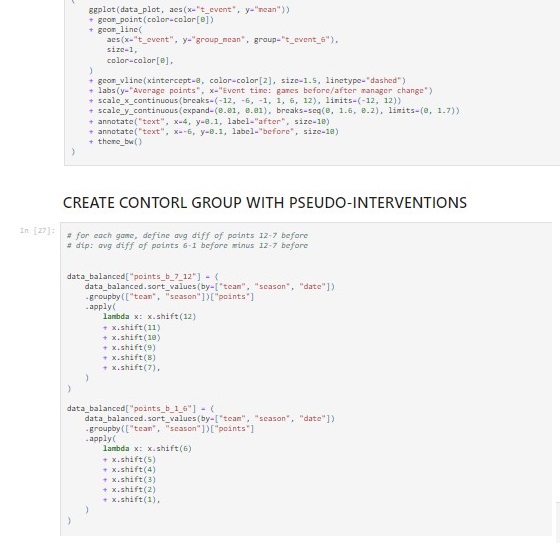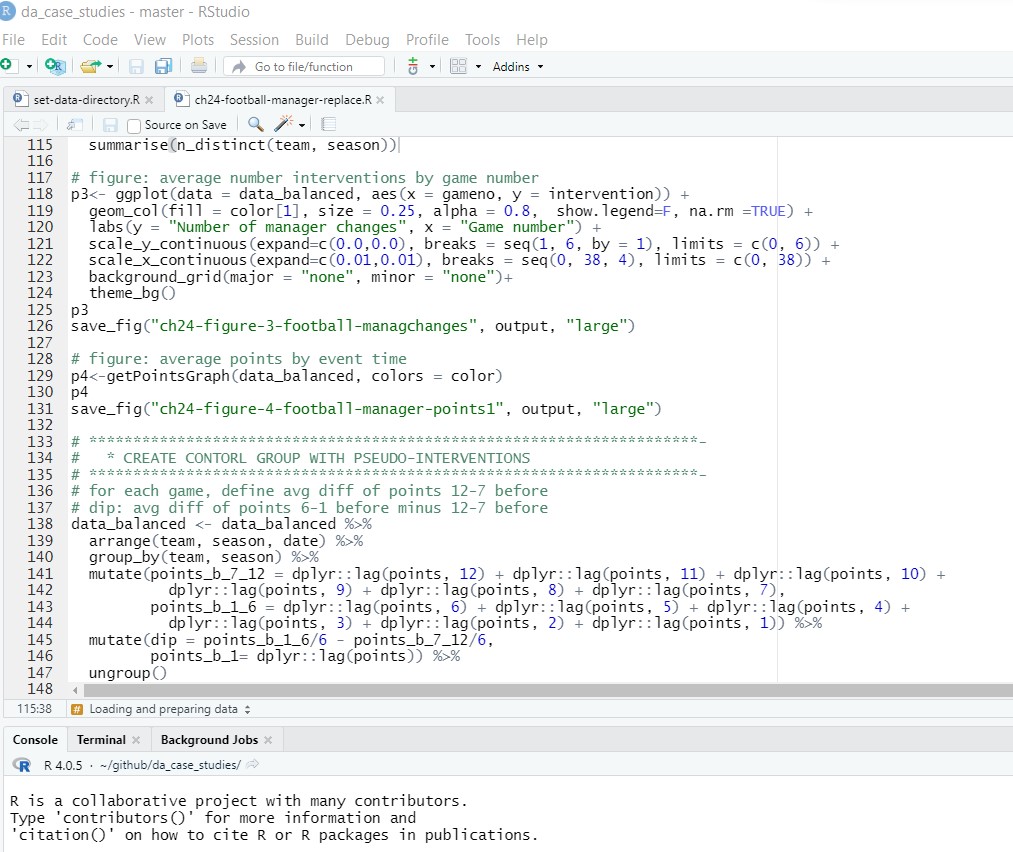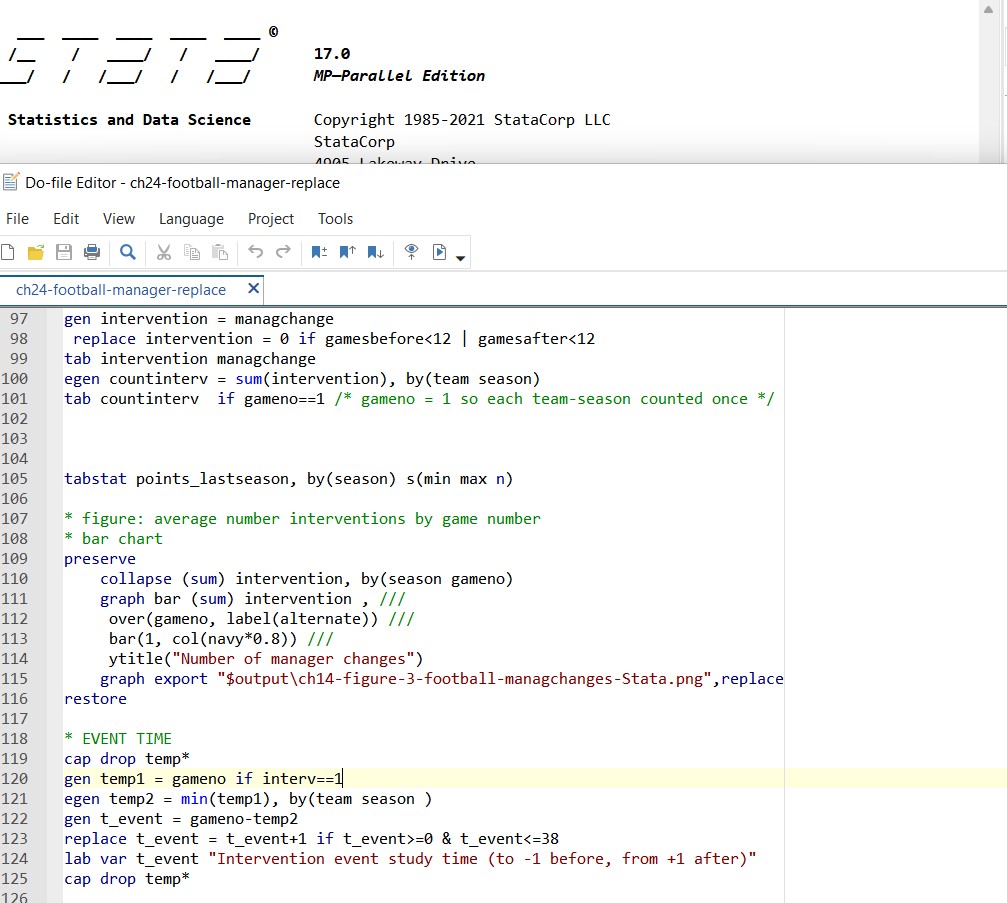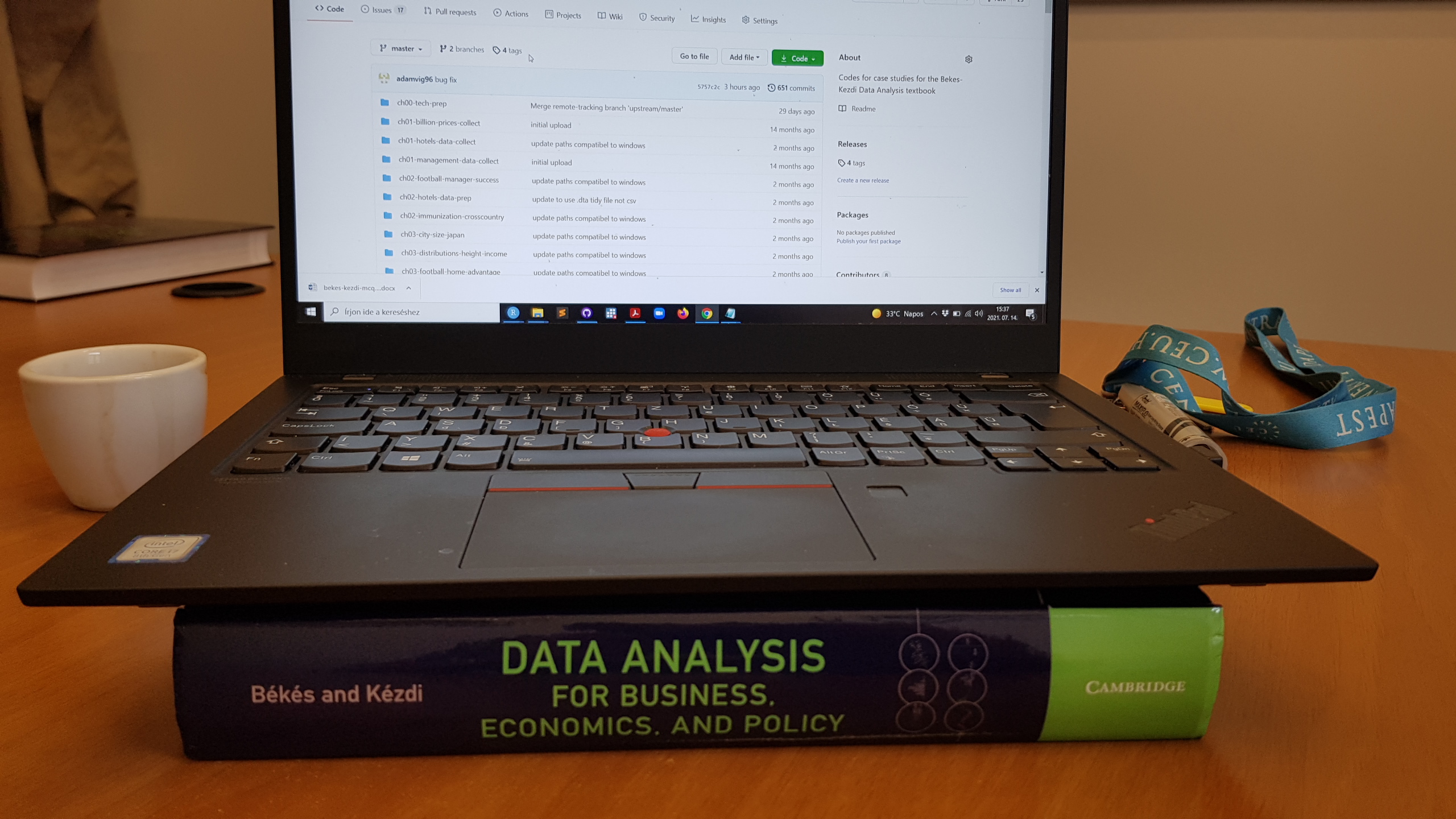Learning to code for data analysis
NEW! Neu! Nuevo! Új! Nouveau! Our own coding courses
Well, well, well. We are developing coding courses to go along with the matreial in the book.
This course material is a supplement to Data Analysis for Business, Economics, and Policy. For more, see the textbook’s website gabors-data-analysis.com.
The courses serve as an introduction to the R and Python and Stata programming languages and software environments for data exploration, data munging, data visualization, reporting, and modeling. Yes, all three!
- Coding for Data Analysis with Rstats by Ágoston Reguly with Gábor Békés
- Coding for Data Analysis with Python by Ádám Víg and Péter Duronelly with Ágoston Regulyand Gábor Békés
- Coding for Data Analysis with Stata by László Tőkés with Ágoston Reguly and Gábor Békés



About the courses
We believe students will learn using R by writing scripts and solving problems on their own. We provide and show them good practices on how to carry out such tasks, but extensive usage is needed.
R, Python, Stata
Course content is the same in terms of covering what is need to complement Data Analysis for Business, Economics, and Policy. They differ in structure in line with needs from actual language.
Supplement analysis
This is not a hardcore coding course, but a course to supplement data analysis. The material focuses on specific issues in this topic and balances between higher levels of coding and lower levels in form of basic coding principles – which allows greater complexity, deeper understanding, but requires much more practice and has a steeper learning curve.
The material structure reflects these principles. The majority of the lecturers have pre-written codes which include in-class tasks to practice and face problems along with regular homework. This enables the instructor to show a greater variety of codes, good examples for coding, and way more commands and functions than live coding while providing room for practicing. For this type of lecture, homework is essential, as it helps students to deepen their coding skills. There are also few live-coding lectures, which require flexibility and more preparation from the teacher (material provides detailed instructions). These lectures are focusing on basic coding principles such as the introduction to coding, functions, loops, conditionals, etc., and show students possible paths to hardcore coding, while showing alternative methods as well.
Solutions to tasks but not to exercises
It is always a good question if solutions for the tasks or homework should be made available for students. We believe show students the in-class solution is beneficial and does not distort motivation as slower learners may want to revise and compare the true solution to their own. Hence, for each lecture, we provide the solutions for these tasks. However, this is not the case for the homework. We found that showing solutions to the students rather depresses their motivation and creativity, therefore there are no solutions for the homework. (It is important that there are (infinitely) many good solutions for an HW, thus we usually encourage students to try out different paths as well.)

How to use
This course material may be used as a basis for a course on learning coding with R for the purpose of analyzing data. It is developed to be taught simultaneously with the textbook but may be used independently. It is rather comprehensive and thus, may be used without any textbook to prepare.
We have not invented the coding wheel. Instead tried to adopt best practices and combine them with real-life case studies from the textbook.
There are no slides, but codes are commented heavily thus it should be easy to follow. In some cases, it is beneficial to read the related case study and/or the chapter to fully appreciate the codes and comments, but not necessary.
Give it a go!
- Coding for Data Analysis with Rstats
- Coding for Data Analysis with Python
- Coding for Data Analysis with Stata
Found an error or have a suggestion?
Awesome, we know there are errors and bugs. Or just much better ways to do a procedure.
To make a suggestion, please open a GitHub issue here with a title containing the case study name. You may also contact us directly.